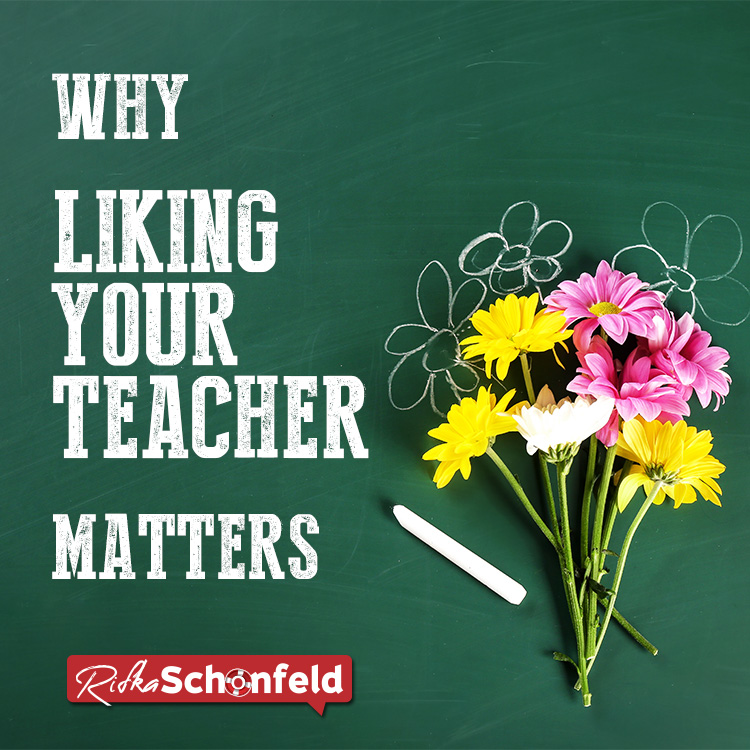Why Liking Your Teacher Matters
- rifkaschonfeld
- April 26, 2021
- 0 Comments

Why Liking Your Teacher Matters
By: Rifka Schonfeld, Director S.O.S (Strategies for Optimum Success)
Between remote learning, hybrid classes, and school closures, it’s harder than ever today for teachers to build rapport with their students. From an academic standpoint, why should we are if teachers and students build rapport? Well, actually, because there is a lot of hard science out there that shows us how important those relationships are to learning.
Motivation. If a teacher praises a student, the student brain releases the neurotransmitter dopamine. Dopamine plays an important role in motivation, encouraging us to focus, strive, or even find things interesting. The stronger the positive relationship between the teacher and the student, the more likely the student’s brain will be to produce dopamine. This dopamine in turn increases motivation, creating a motivation loop.
Safe space. When teachers and students are comfortable with each other, talking or laughing, their brains release the neurotransmitter oxytocin. Oxytocin signals to our brains that we are in a safe and trusting environment. The hormone reduces fear which allows us to be more receptive to learning and new information.
Both instilling motivation and creating a safe space are integral parts of learning, helping students feel that they both want to learn and that the conditions are right for learning. So what can we do in order to build those relationships between teachers and students in order to better facilitate learning?
- Get to know your students. Research recommends five positive interactions to counteract every 1 negative interaction. The more teachers know about students, the more they will be able to have positive interactions. Inquiring about grandparents, students’ pets, and specific hobbies, will allow teachers and students to build that rapport.
- Praise the effort, not the outcome. Teachers can give students positive feedback for their attempts. This will allow them to know that there is a safe space for failure too, as long as a good faith attempt is made.
- Model social skills and empathy. When teachers share with students their struggles and how they are attempting to deal with them in rational yet still emotionally invested ways, their students not only see their teachers as role models but are able to connect with them on a more personal level.
We aren’t all teachers – so we can’t implement these techniques in our classrooms. However, we are all capable of integrating some of these tips into our everyday lives and even perhaps facilitating some of these conversations with the many teachers struggling with their remote teaching today.
An acclaimed educator and social skills specialist, Mrs. Rifka Schonfeld has served the Jewish community for close to thirty years. She founded and directs the widely acclaimed educational program, SOS, servicing all grade levels in secular as well as Hebrew studies. A kriah and reading specialist, she has given dynamic workshops and has set up reading labs in many schools. In addition, she offers evaluations G.E.D. preparation, social skills training and shidduch coaching, focusing on building self-esteem and self-awareness. She can be reached at 718-382-5437 or at rifkaschonfeld@gmail.com. You can view the web at rifkaschonfeld.com.

